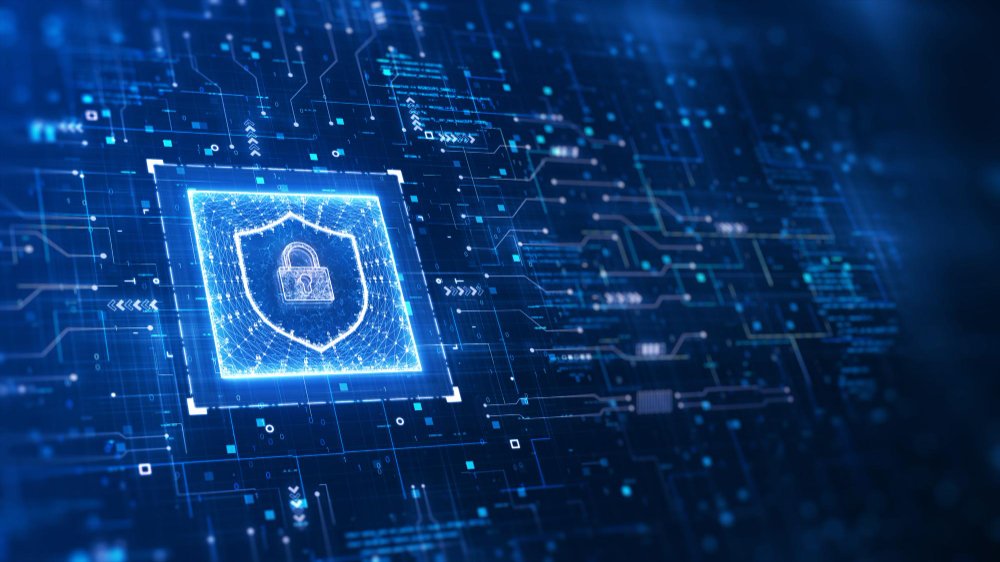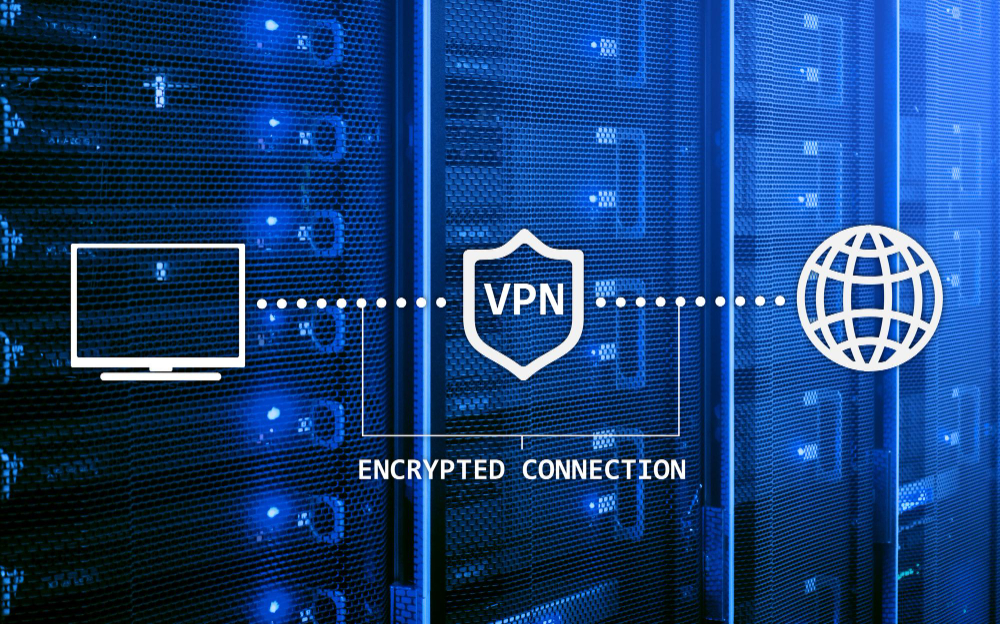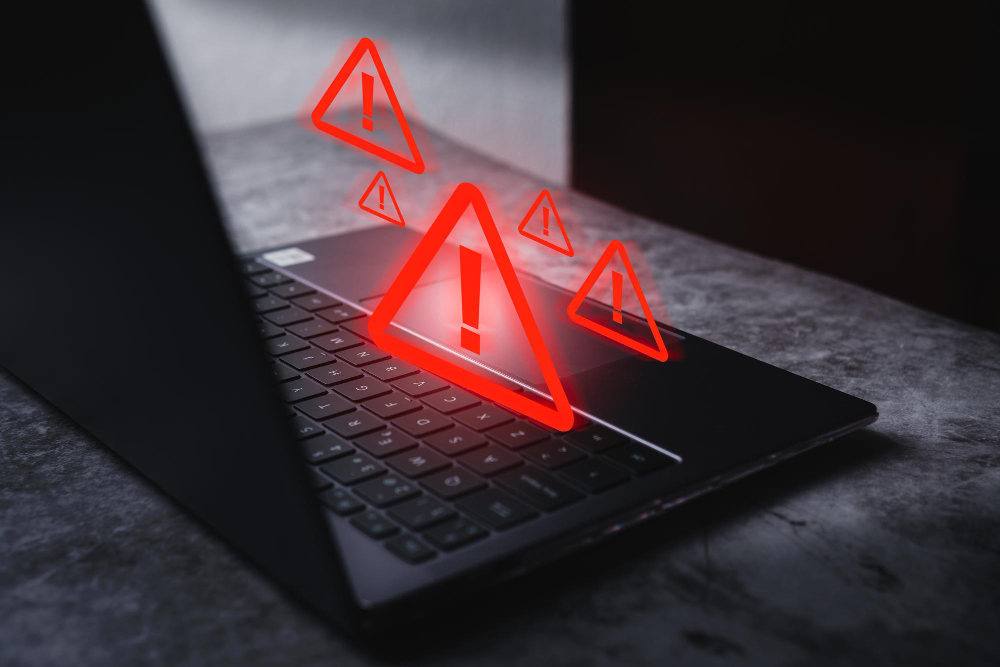How secure is your online activity? VPN encryption ensures your remote security by encrypting data during transactions and across your network.
Using an encryption key, a VPN connection establishes a secure link between your device and a VPN server, keeping your information safe. The result? You can protect your digital security and encrypt data, safeguarding personal and sensitive information.
Curious about how it actually works? Read our explanation below to learn more about VPN encryption!
What is a VPN?

A VPN (Virtual Private Network) is a tool that secures your internet connection by hiding your IP address, encrypting your data, and routing it through a remote server.
This tool helps protect your privacy, ensuring that your online activities remain private and secure even under public WiFi. Additionally, you can access region-blocked websites.
VPN services are available in both free and paid versions, each with its own terms and conditions. Free VPNs may have limitations, such as slower speeds or restricted data, while paid VPNs typically offer better security, faster connections, and a wider range of servers across countries.
What is VPN Encryption?

VPN encryption secures the data transmitted through a VPN by transforming it into an unreadable format using specific encryption algorithms known as “ciphers”, such as the AES-256 encryption.
This ensures that only those with the proper decryption key can access the original information.
VPN encryption safeguards your online activities from unauthorized access and makes it difficult for anyone to intercept sensitive information.
The Importance of VPN Encryption

A reliable VPN encryption system contributes to the safety of one’s data. Here are some importance of VPN encryption:
Untraceable Browsing
VPN encryption conceals your IP address and encrypts data; it makes sure your browsing activity untraceable. This ensures that websites, advertisers, and cybercriminals cannot monitor or track your online actions, protecting your privacy.
Access to the Free Internet
With a VPN, you can bypass geographic restrictions and access the free internet. This allows you to reach content that may be blocked or censored in certain regions, giving you greater online freedom.
A study reveals that most people use VPNs for privacy and security, but students also care about accessing restricted content for educational purposes.
Enhanced Online Security
VPN encryption secures your data during transmission, protecting it from hackers and cyberattacks. By encrypting your information, a VPN enhances online security and keeps your sensitive data safe from unauthorized access.
What Encryption Methods are Used by VPNs?

Different VPN service providers use encryption in various methods. From AES to transport layer security, here’s a closer look at the types of encryption.
AES Encryption
AES encryption, or Advanced Encryption Standard, is a secure method for encrypting data using block ciphers.
It’s recognized for its efficiency and strong encryption protection, making it ideal for safeguarding sensitive information across various applications like online banking and secure communication.
Symmetric Encryption
Symmetric encryption is a technique where the same key is used for both encryption and decryption. Both parties involved must have access to this shared secret key.
It is a fast and effective method for encrypting large volumes of data, commonly used in secure communication systems.
Public-key Encryption
Public-key encryption, or asymmetric encryption, involves two keys: a public key and a private key. The public key is for encrypting the data, while the private key is for decrypting it.
The public key is available to everyone, while the private key is kept secure by the recipient. This ensures that only the intended recipient can decrypt the message, enhancing communication security.
Transport Layer Security
Transport Layer Security (TLS) is a VPN protocol designed to secure data transfer over the internet. It ensures that the communication between two systems is encrypted and secure, protecting data from being intercepted or altered during transmission.
This security method is commonly used to secure website connections and other online services.
The Stages of the VPN Encryption Process

So, how does a VPN work? Here is what happens during the encryption process when you use a VPN:
- Connection Request: You connect to a VPN by requesting access to a VPN server through your VPN app.
- Authentication: The VPN server verifies your identity and ensures you are authorized to use the VPN service.
- Key Exchange: The VPN connection involves exchanging encryption keys between your device and the VPN server. These keys are essential for encrypting and decrypting data.
- Data Encryption: Your data is encrypted using a cipher and the encryption key before being transmitted.
- Data Transmission: The encrypted data travels securely through the VPN encrypted tunnel to the VPN server, protecting it from prying eyes.
- Decryption: Once the data reaches the VPN server, it is decrypted and forwarded to its intended destination.
- Response Encryption: Any response data sent back follows the same process, being encrypted, transmitted, and decrypted for your secure access.
What are the Risks of Not Using VPN Encryption?

VPN provides added safety. Conversely, not using VPN encryption can potentially expose your personal data and company data to several risks.
One significant threat is an MITM (Man-in-the-Middle) attack, where cybercriminals can intercept your data as it travels over the public internet, putting sensitive information at risk.
Without encryption, your online activities can also be tracked, leading to potential identity theft and unauthorized access. Hence, a VPN is very much recommended for digital data security.
Frequently Asked Questions
What layer does VPN encrypt?
Are VPNs end-to-end encryption?
How do I check if my VPN is encrypted?
Conclusion
So, have you been taking the right steps to secure your online data? VPN encryption is important for protecting both personal and company information, ensuring safe browsing, and keeping cybercriminals from intercepting your data.
Without it, you’re exposed to serious risks like MITM attacks and data theft, especially on public internet connections.
For expert help in strengthening your online protection, contact Fluxgate today and let our team provide the security you need.
